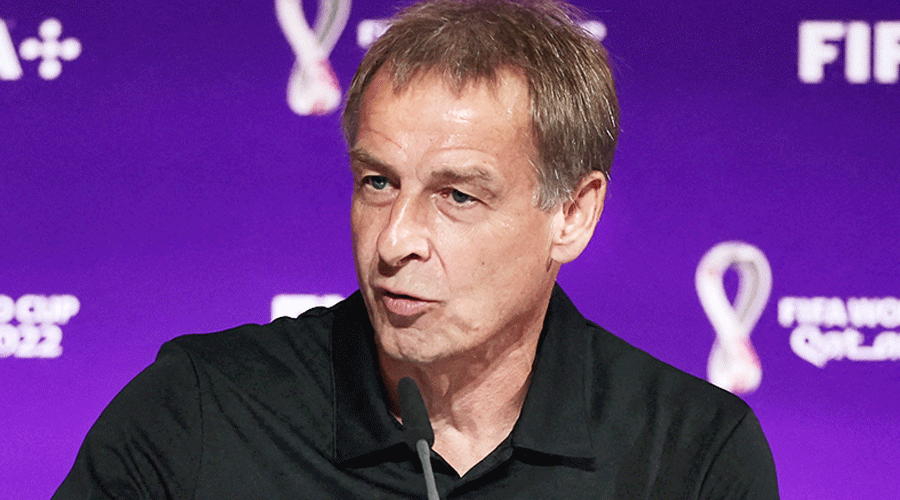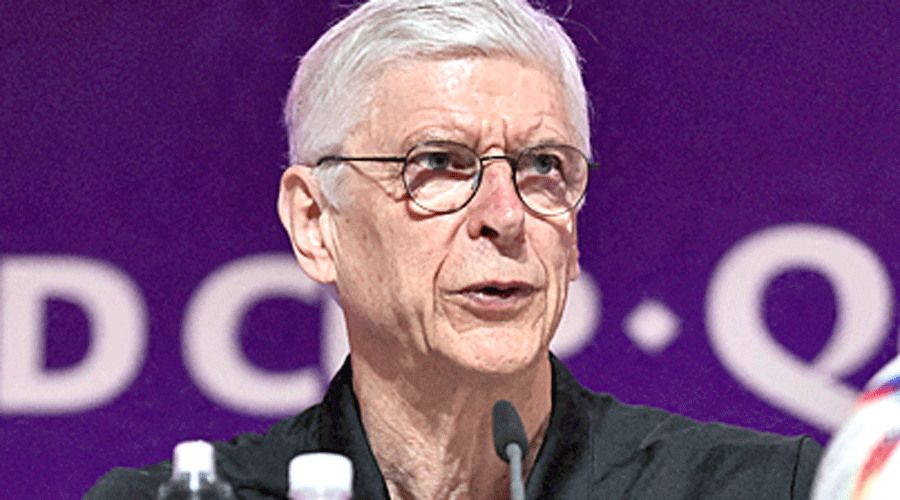Germany have exited the World Cup but not before leaving their mark: they had 67 attempts across their three group league matches, the highest among the 32 participating teams.
That’s a mind-boggling 22.3 per match. They had 24 attempts on target, which is eight per match, but they scored a mere six goals.
This has left experts baffled. The team with the most number of attempts is out of the World Cup. The data reveal that Argentina had 58 attempts on goal, while Brazil and France had 52 each.
So is the lack of a striker in the German team one of the reasons for their failure to go past the group stage?
Former Germany international Juergen Klinsmann, one of the key members of the Fifa Technical Study Group headed by former Arsenal manager Arsene Wenger, feels a dearth of strikers is hurting Hansi Flick’s side in major tournaments.
“That’s the only reason I can zero in on. A striker’s role is to score goals and Germany for the last few years have depended on wingers and midfielders to do that job. When they fail, they will have that excuse of ‘Well I am not a striker so cannot score in every match’. Germany urgently need a striker. The last striker we had was Miroslav Klose. Unless we find one we will continue to suffer in major tournaments,” Klinsmann said during a media interaction on Sunday.
Wenger though hinted that off-the-field activities could also be a reason for an early ouster. “When you go to a World Cup, you know you can’t lose the first game,” Wenger said. “The teams who were mentally ready, with a mindset to focus on competition, and not the political demonstrations.”
Germany, before their first match against Japan, had covered their mouths in protest against Fifa’s no to any sort of protests against alleged discrimination in Qatar. They lost the match.
Klinsmann and Wenger were decoding the data available after the first-round matches.
The figures show the ever-increasing dependence on the flanks to break the defences as there have been more goals from crosses. Also, coaches are using goalkeepers as field players more than they did in the 2018 World Cup in Russia.
“The figures indicate that goalkeepers are ‘playing around’ the opposition more often. This shows that modern goalkeepers are expected to play a significant role in starting attacks, and to do that, they need to be capable of playing the full range of passes,” Wenger said.
One of the first to use a goalkeeper as a sweeper was current Manchester City manager Pep Guardiola during his time with Barcelona (2008-12)when ‘keeper Victor Valdes was initiating attacks from the back. That started the trend and soon it became a common thing.

Juergen Klinsmann. File photo
“In our days the spine used to be the player wearing the No. 10 jersey. The playmaker as we say. Now we have three playmakers in a team and the goalkeeper is the No.1 playmaker. Goalkeepers becoming more and more field players will also bring a change in the style of working of academies and youth coaches. They will now have to develop a full range of passing skills among the young goalkeepers,” Klinsmann said.
This World Cup has seen a lot of wing play and according to Wenger, the team with the best wide men will have the highest chance to win theWorld Cup. “With coaches focusing more on the centre to negate pressing football, it’s the flanks from where the maximum number of goals have been scored till the group stage. This will continue in the knockout rounds and the teams with the best flank players will have the last laugh,” Wenger predicted.
Teams like France, the defending champions, and Brazil who have quality players on the flanks are reaping the benefits. For example, France chipped the ball down the Danish right flank in a move that eventually led to KylianMbappe scoring from a close-range. Similarly, against Serbia, Brazil, in a clever switch of play, opened up the opposition’s defence before Richarlison scored arguably the best goal of the group stage.










